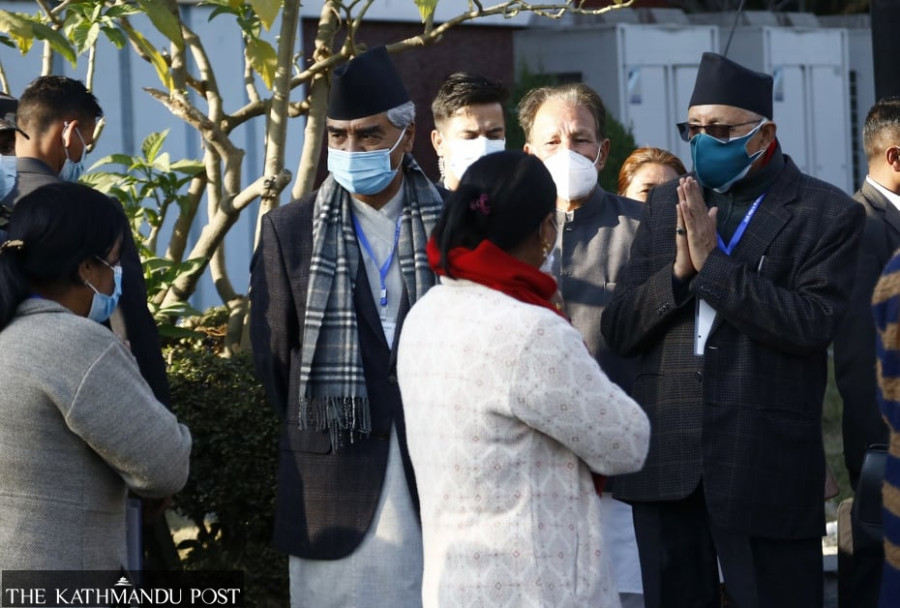Editorial
Same old faces
The truth of the matter is that back door dealings are an open secret.
Nepal yesterday woke up to the news of the conclusion of yet another jamboree of political attendees of one of the country's oldest political parties. The result of this general convention was pretty much known to people all along. Despite the country's going through extreme social and political upheaval, it never adversely affects those at the helm of affairs. Whatever the crisis, they are never seen to be banished to the "dustbin of history". The general convention of the Nepali Congress reflected just what needs to be corrected with politics in Nepal.
A small group can preside over the problems of the people without the need to seek any concrete solution, and yet have the confidence to stand for party positions and eventually for public office. This particular case of choosing leaders within the party is emblematic of a more significant problem. And it matters because the politics of the Nepali Congress, whether one may like it or not, will define the issues that are pivotal for Nepal. Issues concerning governance, economy and national security, among others. If we wish for a fresh impetus, then that change needs to be first pushed through from within the political parties.
The Nepali Congress convention concluded by re-electing Sher Bahadur Deuba as party president. And those within the party who had vowed to introduce a new face ended up siding with him. When Prakash Man Singh was asked why he had supported Deuba, he said Deuba had promised to reform the party, amend the party's character and change his working style. When you have a person who has been a central figure of the party for the last 30 years, and under whose leadership the party lost in the last general elections in 2017, what change was Prakash Man Singh expecting now when that did not materialise in the last few decades?
The truth of the matter is that back door dealings are an open secret, and the help accorded to Deuba by his erstwhile opponents could be nothing more than a case of quid pro quo. His opponents are just hedging their bets to cover their backs if the general elections turn advantageous. Whatever the case, it is a matter of respecting the mandate of the delegates that were themselves chosen through an electoral process. But there are mounting challenges for the newly elected president of the Nepali Congress, who also happens to be the country's prime minister.
The country has spent almost two years trying to deal with the pandemic, and in doing so, it has had to face insurmountable problems; people have had to deal with so many economic hardships. It has been difficult for the government to plan its budget effectively with falling remittances. It sometimes seems that we're surrounded by problems alone; and with each passing day, the country seems to be falling further down the rabbit hole. So, if Deuba needs to win the people's hearts, he needs to think constructively on how he can manage to effectively rescue the country from the throes of the ongoing mess. After all, it was he who sought his re-election on the backdrop of ensuring stability to the continuing coalition. Indeed, the power to govern should not just be an end in itself.




 25.96°C Kathmandu
25.96°C Kathmandu














